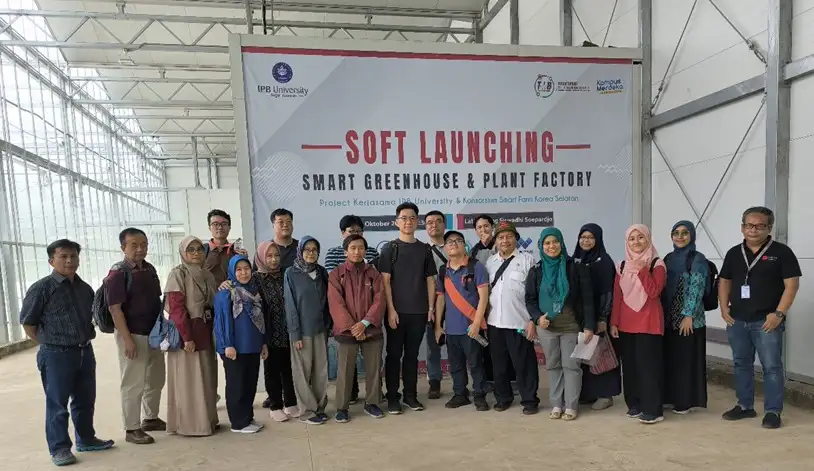The National Research and Innovation Agency (BRIN) of Indonesia, in collaboration with the Korea Institute of Science and Technology (KIST), has initiated a groundbreaking project to develop smart greenhouse infrastructure and smart farming technology. This collaboration was officially launched during a kick-off meeting held at the BJ Habibie Building on December 16, 2024.
Nugroho, Head of the Research Centre for Sustainable Production Systems and Life Cycle Assessment at BRIN, emphasized that this initiative represents a significant step forward in enhancing agricultural practices in Indonesia. The project is supported by Official Development Assistance (ODA) from the Korean government, facilitated through KIST-Gangneung, and is set to strengthen research and innovation ties between Indonesia and South Korea.
The smart greenhouse facility is planned to occupy a 2,000 square meter area within the Soekarno Science and Technology Area (KST) in Cibinong. Following a joint survey and agreement in May 2024, construction is slated to commence in 2025. This state-of-the-art infrastructure aims to support the development of smart agricultural technologies, promoting sustainable and efficient farming practices in the region.
To gain insights into advanced smart farming systems, project participants visited the Leuwikopo Experimental Farm at IPB University's Dramaga Campus in Bogor on December 17, 2024. This facility showcases smart greenhouses and plant factories developed through collaborations with South Korean institutions, including the Korea Institute of Planning and Evaluation for Technology in Food, Agriculture, and Forestry (IPET) and the Korea Smart Farm R&D Foundation (KosFarm).
Edy Hartulistiyoso, Head of the Department of Mechanical Engineering and Biosystems at IPB, highlighted that the smart greenhouse and plant factory projects, running from April 2021 to October 2024, focus on intelligent integrated environmental control. Key innovations include dynamic lighting systems like Sherpa Ray, which adjust light spectra to meet plant needs at various growth stages, achieving up to 55% energy savings compared to conventional systems.
Additionally, precision fertigation-based hydroponic systems enable real-time monitoring and control of nutrient and water delivery, enhancing resource efficiency and boosting plant productivity. Hybrid cooling technologies combine dehumidification with eco-friendly gas-fueled cooling, reducing emissions and recycling CO2 to support photosynthesis. The smart greenhouse employs a venlo design with features such as roof ventilation, fogging systems, and horizontal light filter screens to maintain optimal air temperature and humidity, increasing photosynthetic efficiency by up to 30%. Renewable energy from solar panels supplies approximately 20% of the facility's energy needs.
This collaboration between BRIN and KIST is poised to significantly advance smart farming technologies in Indonesia, fostering sustainable agricultural practices and strengthening bilateral relations between Indonesia and South Korea. By leveraging cutting-edge technologies and shared expertise, the partnership aims to enhance food security and promote innovation in the agricultural sector.
Read More






 Thursday, 22-01-26
Thursday, 22-01-26







